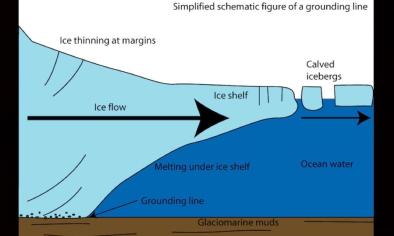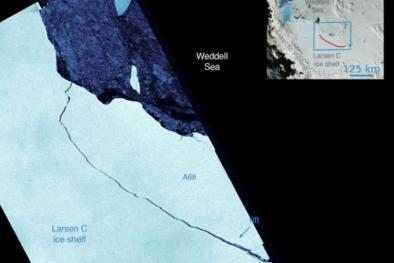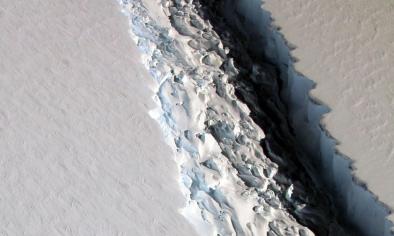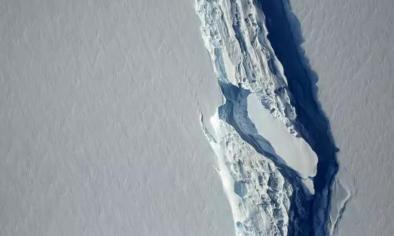The Larsen C Iceberg Is Expected to Have Company
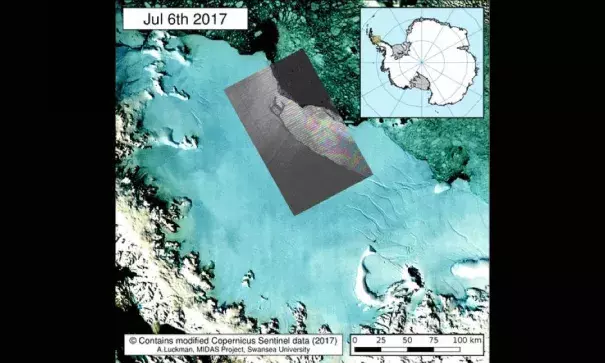
Just three miles stand between the crack that’s been cutting across the ice shelf since 2010 and open water. When it breaks through, it will cleave a trillion-ton iceberg. The stress of having a huge iceberg-to-be nearing its inevitable conclusion has caused that crack to crack up.
New satellite imagery shows a host of new cracks branching off the end of the main rift. According to scientists working on Project MIDAS, an effort that’s closely monitoring the ice shelf, that means there will likely be a swarm of smaller icebergs that break off with or shortly after the main iceberg does.
“It is remarkable how the moment of calving is still keeping us waiting,” Project MIDAS researchers wrote on their blog.
Those icebergs will likely be formidable in their own right, but they’ll look lilliputian next to the iceberg that’s been in the process of breaking off since 2010. That iceberg represents 10 percent of the area of the Larsen C ice shelf and will stretch across an area the size of Delaware. If you squeezed all the ice into a column the area of a football field, it would reach two-thirds of the way to the moon.
After losing icebergs large and small, Larsen C will be the smallest it has been in recorded history. The causes of the massive calving event are likely largely natural. But climate change could have a role in writing the next chapter for the ice shelf. Warm waters are likely to continue their push into the region, eating away at Larsen C and other ice shelves around Antarctica from below.
Related Content
